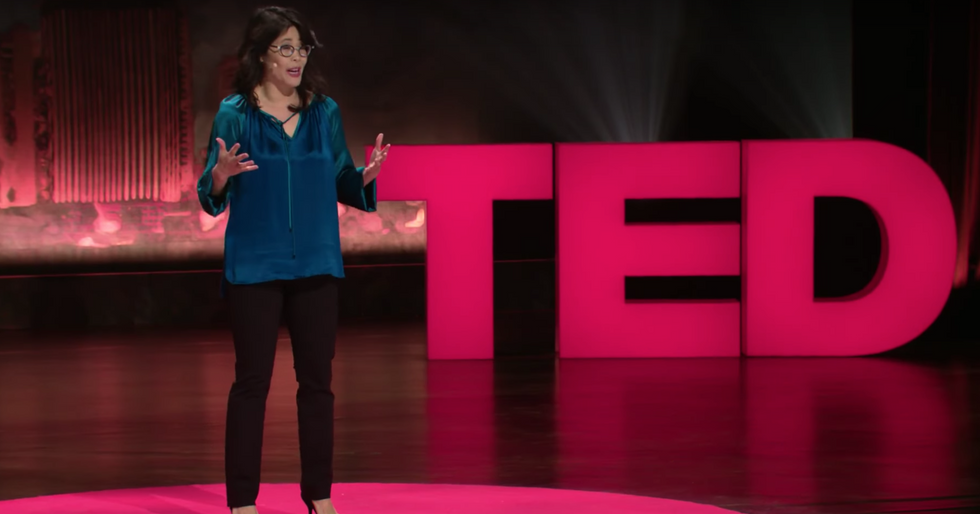I would recommend TED talks to anyone and everyone—those with a love for learning, those who need help in their studies, and those who might be trying to understand why education is important—but I think that students, in particular, have much to learn about the world and themselves through the various teachings of TED. TED, which stands for technology, entertainment, and design, in its own words is "a nonprofit devoted to spreading ideas, usually in the form of short, powerful talks." Most, if not all, of their TED talks are available online, through platforms like Youtube, as well as their own website.
1. Neuroplasticity
The first thing that TED can teach us is that the brain grows if you allow it to grow. While the basic principle of neuroplasticity has been understood for several decades, many still believe that they "can never understand" concepts like math or science. In Carol Dweck's talk, "The Power of believing that you can improve" she explains the difference between a "growth mindset" and a "fixed mindset" and how they can either excel your studies, or inhibit them, respectively.
2. Exercise
While exercise maintains the health of your entire body, it is also one of the best ways you can strengthen your brain. In an eye-opening talk titled, "The brain-changing benefits of exercise," Wendy Suzuki illustrates the extensive benefits of exercise, as well as how it shapes and improves the brain.
3. Becoming a lifelong learner
While our academic strengths and limitations can be influenced by many factors, it's important to examine our material and the ways in which we understand it. Love him or hate him, John Green delivered an interesting TED talk on this topic, detailing the ways in which learning became easier and more enjoyable for him, in his talk, "Paper towns and why learning is awesome."
4. Finding motivation
You can spend your entire life studying, striving to pass each test, earn A's in every class, but the best understandings come from a true motivation to learn. In the talk, "Motivate yourself with visions, goals and willpower," Hugo Kehr explains the (surprisingly simple) model he uses to explain how we can better understand our goals and how to achieve them.
5. Achieving goals
After years of submitting assignment after assignment it can become easy to submit to the belief that you cannot achieve the goals you have set for yourself. Some seemingly counter-intuitive (and yet very helpful) advice is given by Reggie Rivers in his talk, "If you want to achieve your goals, don't focus on them." He explains how important it is to control your behavior on a small scale in order to reach goals on a larger scale.
6. Career choices
I think it's safe to say that we've all experienced stress about our future at some point, but Orla Donoghue argues that life isn't locked into place once you decide your major in her talk, "Career choices: they don't have to be decisions for life." She lists a series of questions that can help you better understand the path you hope to travel.
7. Changing careers
If you're still worried about how your life will progress after college, watch "How to Change Careers when You're Lost," by Felicia Ricci, where she offers some more reassurance about navigating the constantly changing workforce we're about to enter.
8. Happiness
Something we often struggle with as students (and people) is happiness. Some of us are trying to find it again, some may be trying to discover it for the first time, and others are searching for ways to maintain it through the ups and downs of life. Even those who feel completely satisfied with their relationship with happiness can gain something by watching the TED talk, "The surprising science of happiness" by Dan Gilbert.
9. Social relationships
With all of the academic pressures of college, it can be easy to neglect other aspects of your life that are just as important (if not more so) in your happiness and health. Susan Pinker explains exactly how important social relationships are to your health and why this is, in her talk, "The secret to living longer may be your social life."
10. Relaxation
Last but not least, after a long day, week, or semester of studying, it might be difficult to rediscover what it means to relax and give yourself time to breathe. Relaxation is a technique we could all use some practice perfecting, and Bryan Russell explains how we can do just that in his TED talk, "How to Relax."

















